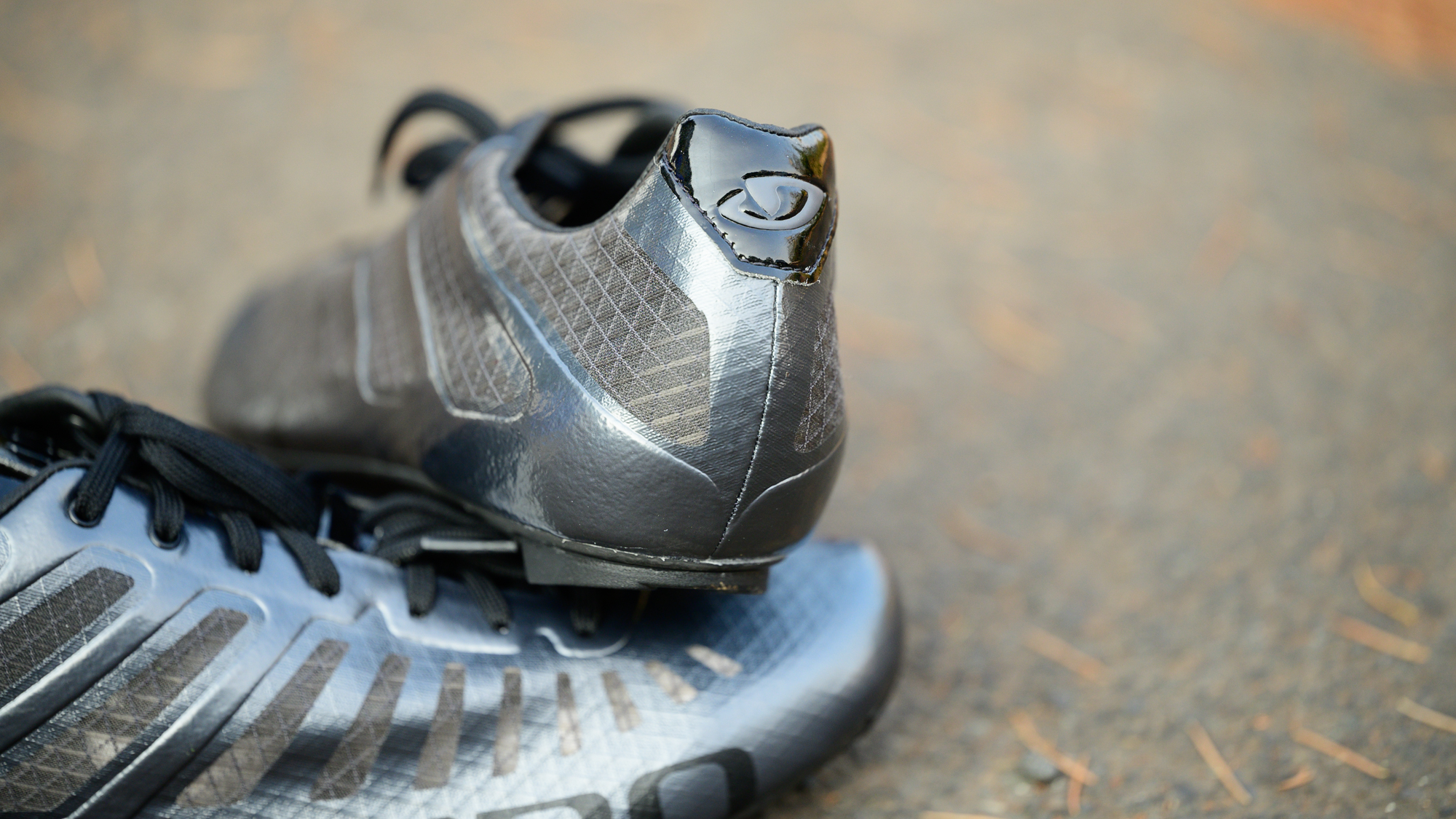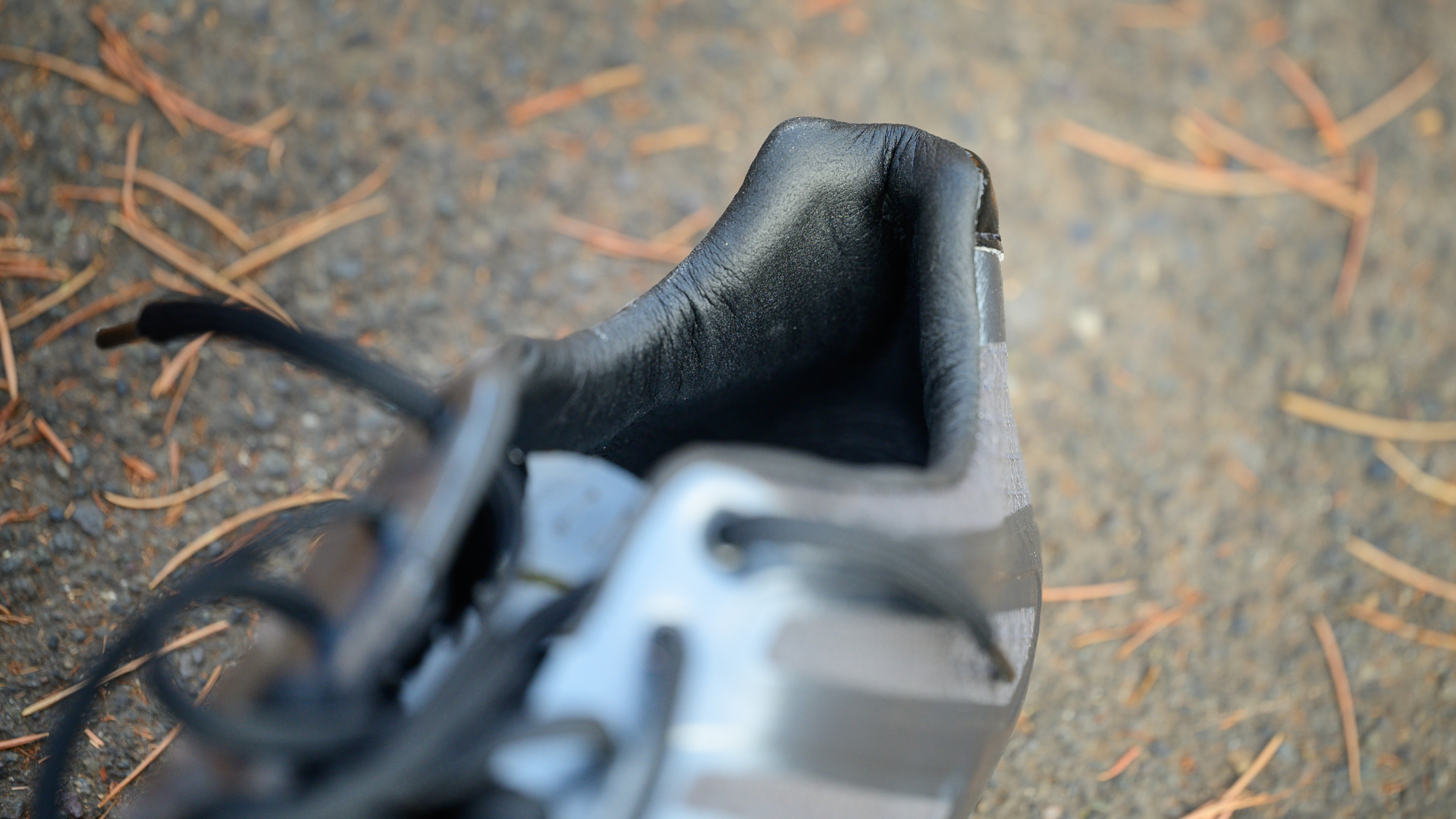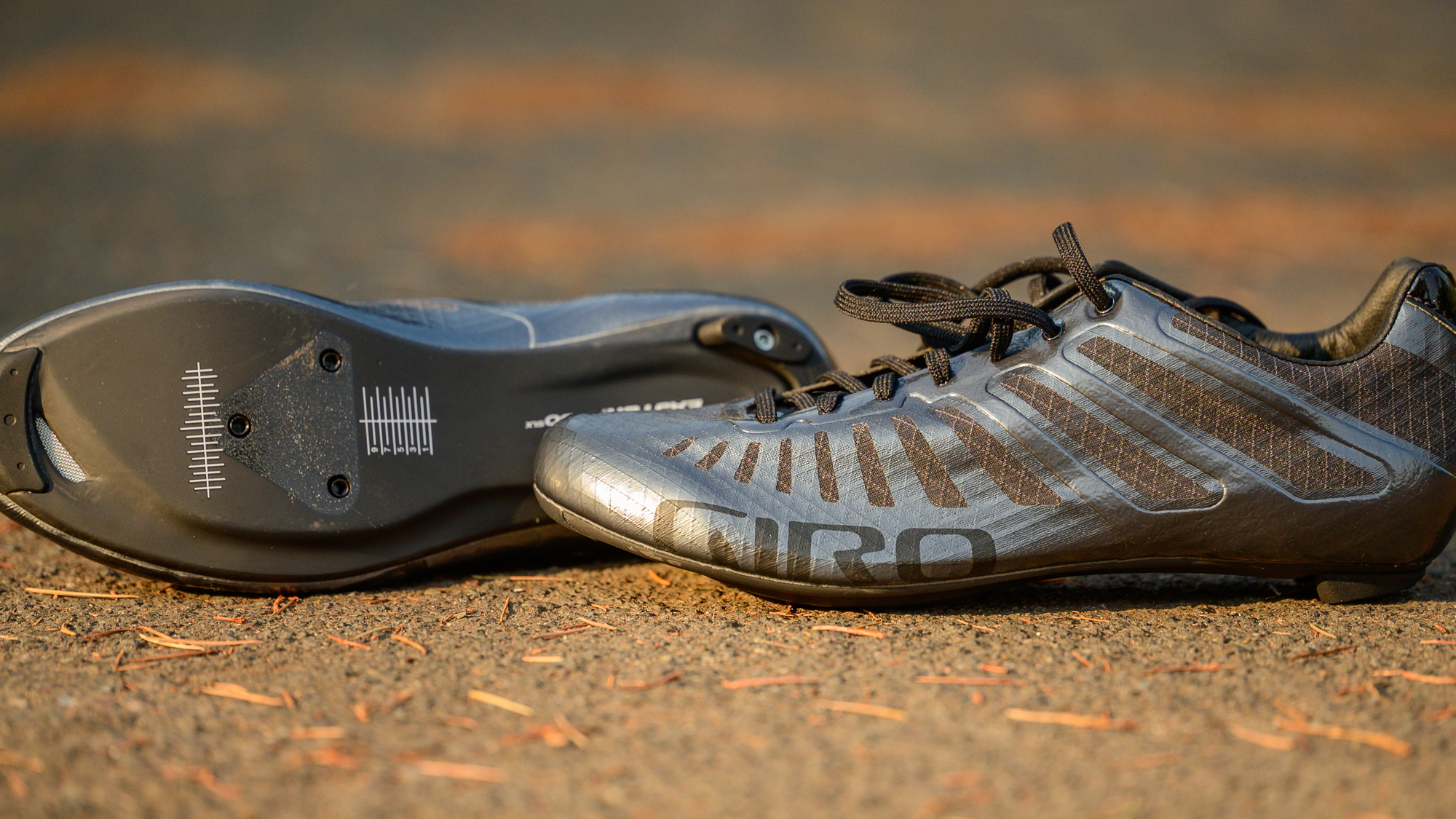
The Giro Empire SLX is an anomaly in the cycling world. While most shoes have been on the market for a matter of months, the basic silhouette of the Empire has been making appearances since 2012. At the time, Taylor Phinney was a rising star with a quirky style. He was also looking for a shoe sponsor and had the credibility to get Giro to make something. At his request, the brand put together shoes reminiscent of the Nike Mercurial Vapor soccer/football shoe for ease of covering during a time trial. At the time of that initial production, there was no plan for a commercial release. Then Phinney crashed a couple of times.
Price: $375 / £329.95
Sizes: 39-48 with half sizes available for 42-44
Weight: 212g per side, Size 44
Colours: Black Yasuda, Carbon Black, Crystal White, or Iceberg
Actually, the shoes got attention first when Phinney was the fastest in the 2012 Giro d'Italia prologue while wearing them. Then when he crashed and destroyed the buckle on a shoe in stage 1, he continued to use the prototype Giro shoes. In stage 3, Phinney crashed again. This time he was wearing what would become the Giro Empire and photographs of his taped up foot partially stuffed into a laced up shoe were suddenly plastered everywhere. Because of the notoriety, Giro decided to bring the Empire to market in 2013.
Six years later, in 2019, Giro again launched an Empire but this time it was the SLX. The two shoes are similar but not exactly the same. Three years later though, there's been no significant changes at all. The word is you can thank the pandemic but it doesn't much matter. The Giro Empire SLX is practically ancient in cycling's fast-moving ecosystem yet we have them occupying a prominent spot in our best cycling shoes buyers guide. If you are looking for a new pair of cycling shoes, keep reading to see why the Giro Empire SLX continues to be relevant all these years later.
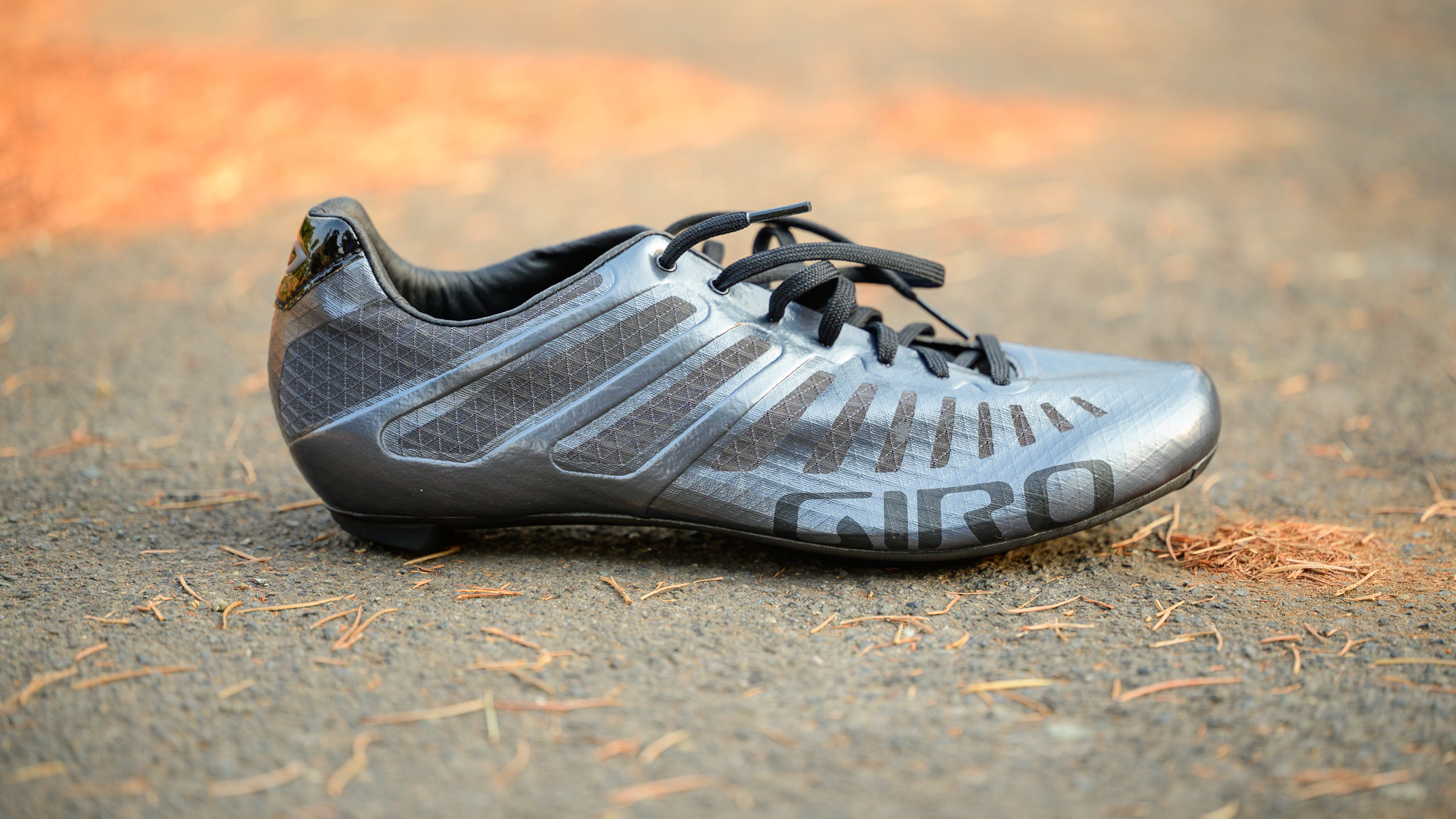
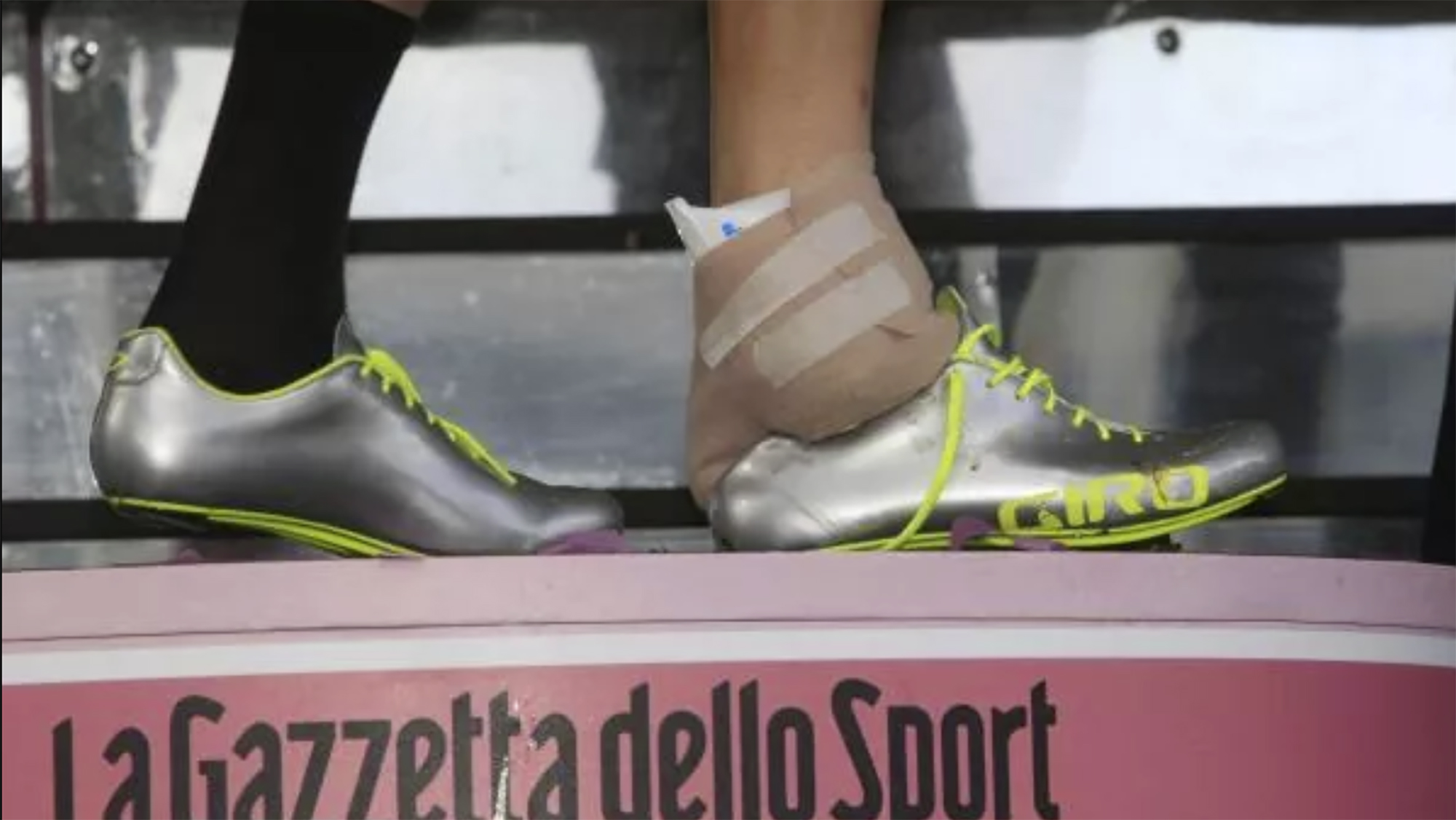
Design and aesthetics
The Giro Empire SLX might be unique for the longevity of the platform but there's a lot more to it. Before getting too far though, it's always worth defining what we are talking about. The original laced Giro shoe wasn't the SLX version. Instead it was closer to the current Empire which is still out there as an option with a lower price. That's despite both the Empire and the Empire SLX using the same carbon base.
In fact, not only do the two current Empire versions have the same sole, so do older versions of the SLX. I looked back as far as I could and the same Easton EC90 SLX2 sole is what I found. Although EC90 is a reference to the best quality carbon that Easton makes, in this case it is the exact same base. There is an ultra thin and non-replaceable toe bumper and a small air inlet just behind it.
Keep moving back across the EC90 SLX2 sole and you will see a few more weight savings tricks. That means things like no adjustability for the three bolt cleat mount and titanium bolts holding the replaceable heel bumper. You also find an exceptionally low stack height, though at 6.5mm both the Bont Vaypor (3.9mm) and Shimano S-Phyre RC903 (4.9mm) are lower.
Another feature shared between the Empire shoes is the insole system. Giro refers to it as the "Supernatural Fit System" and it's a system of three arch supports. The whole centre section of the insole features a section where you will find two large strips of Velcro. Take your pick of a low, medium, or high arch support and stick it in place. Once there it feels like a single unit and pairs with a raised spot in the centre of the top that further stabilises your foot.
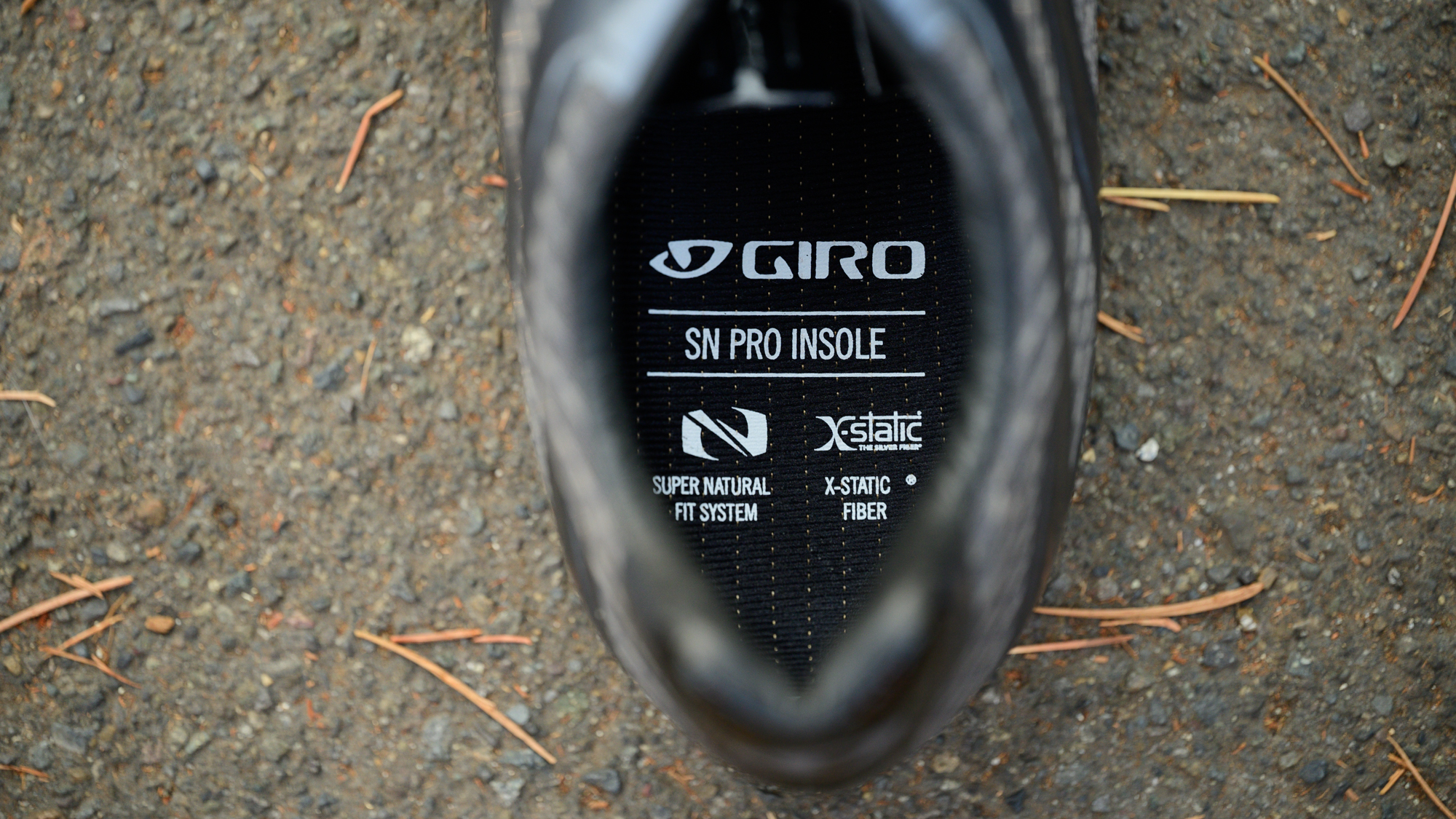
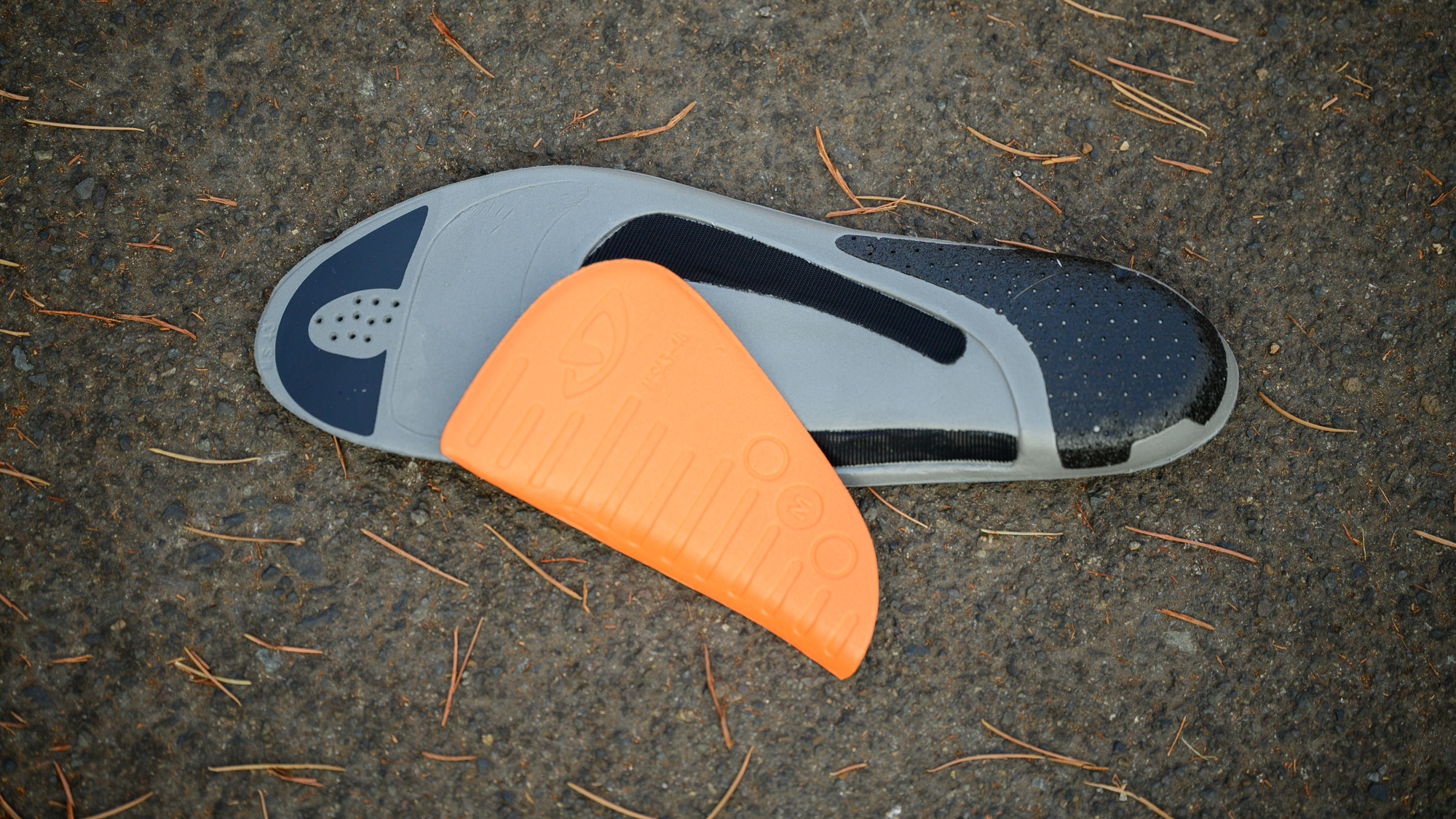
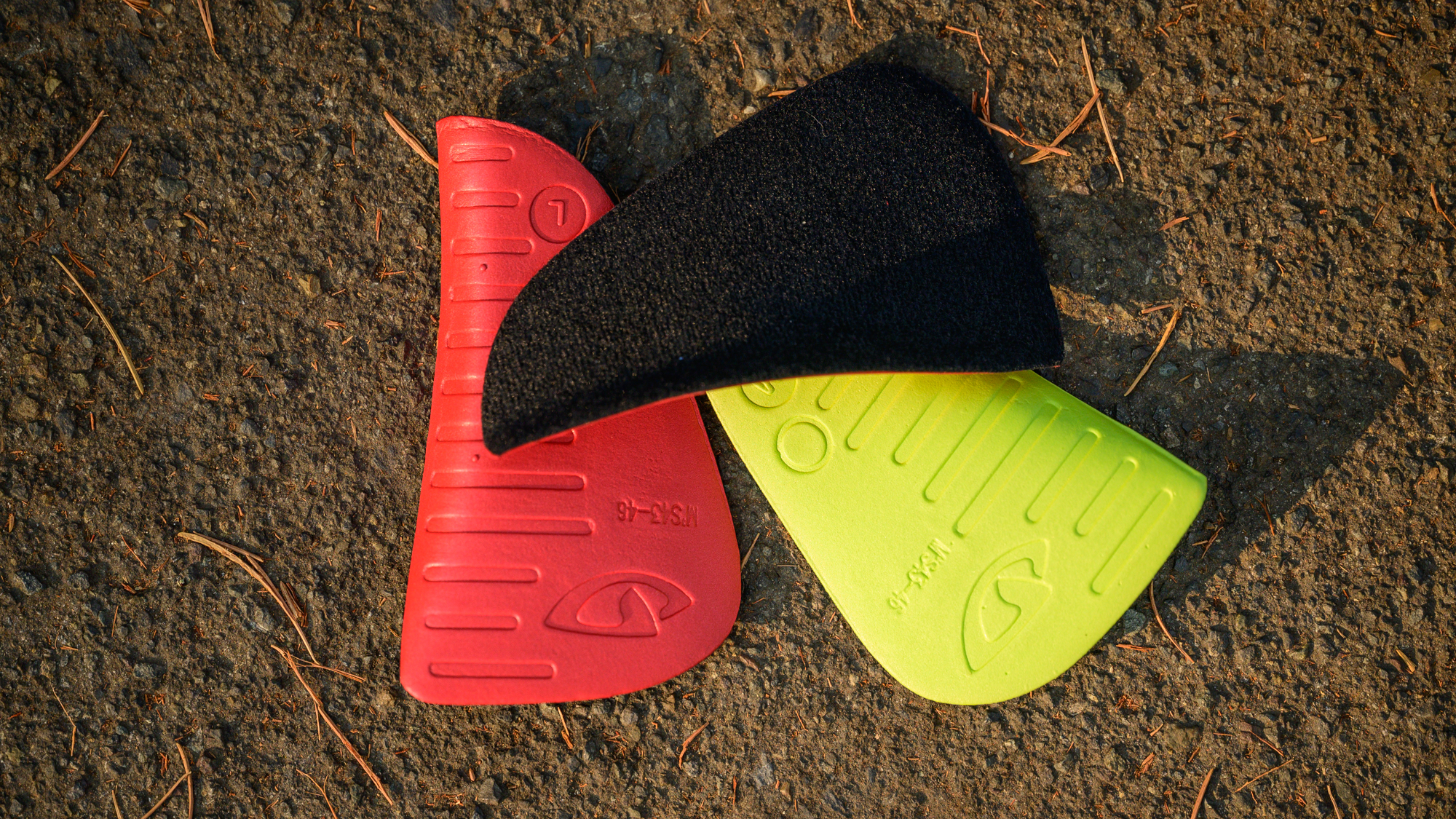
Where things really differ between the Empire and the Empire SLX is the design of the upper. While the Empire uses Teijin Samo microfibre upper to support the seven pairs of lace holes, the SLX shoe uses Teijin Evofiber SL Microfiber. The point here is to drastically save weight. The lightweight, highly ventilated design is not only the difference between the Empire and the Empire SLX but also the biggest update that came in 2019.
Accomplishing a claimed saving of 39 grams per shoe is the job of both the different fabric as well as a stitch-less design. Instead of stitches, the double layer upper is thermally bonded together. Anywhere that needs to resist the pull of the closure system has the Teijin microfiber outer layer. In areas where there is no direct force you instead find only a thin monofilament reinforced mesh layer. Much of these areas are so translucent that your socks will need to team up the Black, Carbon Black, Crystal White, or Iceberg upper colour to complete the aesthetic. You may want to choose your sock with that in mind.
All this aside, the one feature that consumers associate with the Giro Empire shoes are the laces. Back in 2012, laces were almost non-existent with any number of buckle or strap systems looking to replace what many looked at as an outdated solution. Today there are a wide variety of laced cycling shoes available, largely owing to the Giro success. The Giro laces are different though.
The laces on the Giro Empire SLX aren't particularly close to the kind of laces commonly found on running shoes. Giro calls attention to the tubular woven construction and that's important because of the stretch it imparts. The stretch laces won't come untied and at the centre of the tongue is a "lace garage" to hold the knot securely out of the way while pedalling. If you are dead set against laces it's worth noting the Giro Imperial is almost exactly the same shoe as the Empire SLX but with BOA dials instead of laces. They are less aerodynamic and heavier but you can precisely adjust them mid-ride.
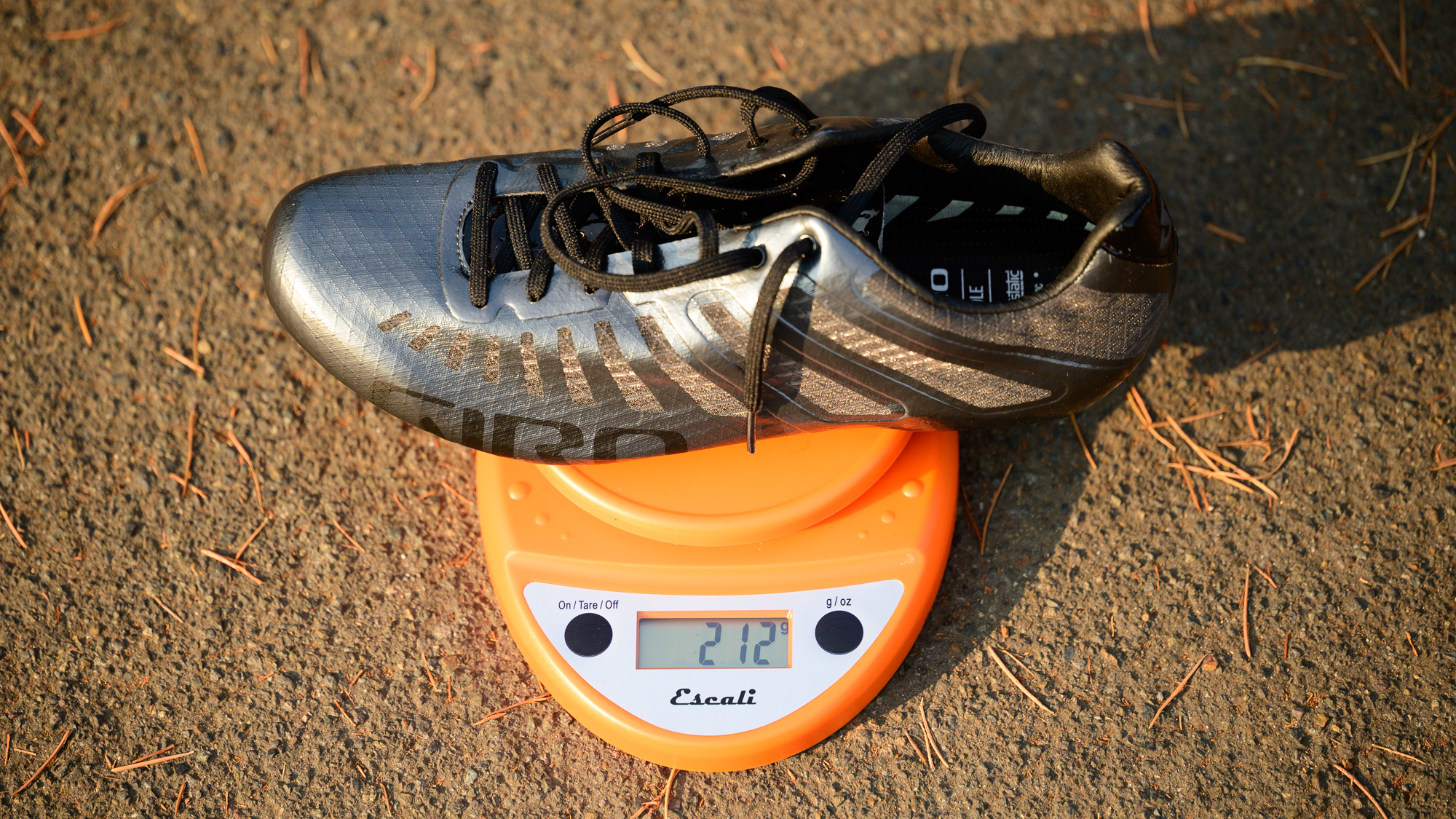
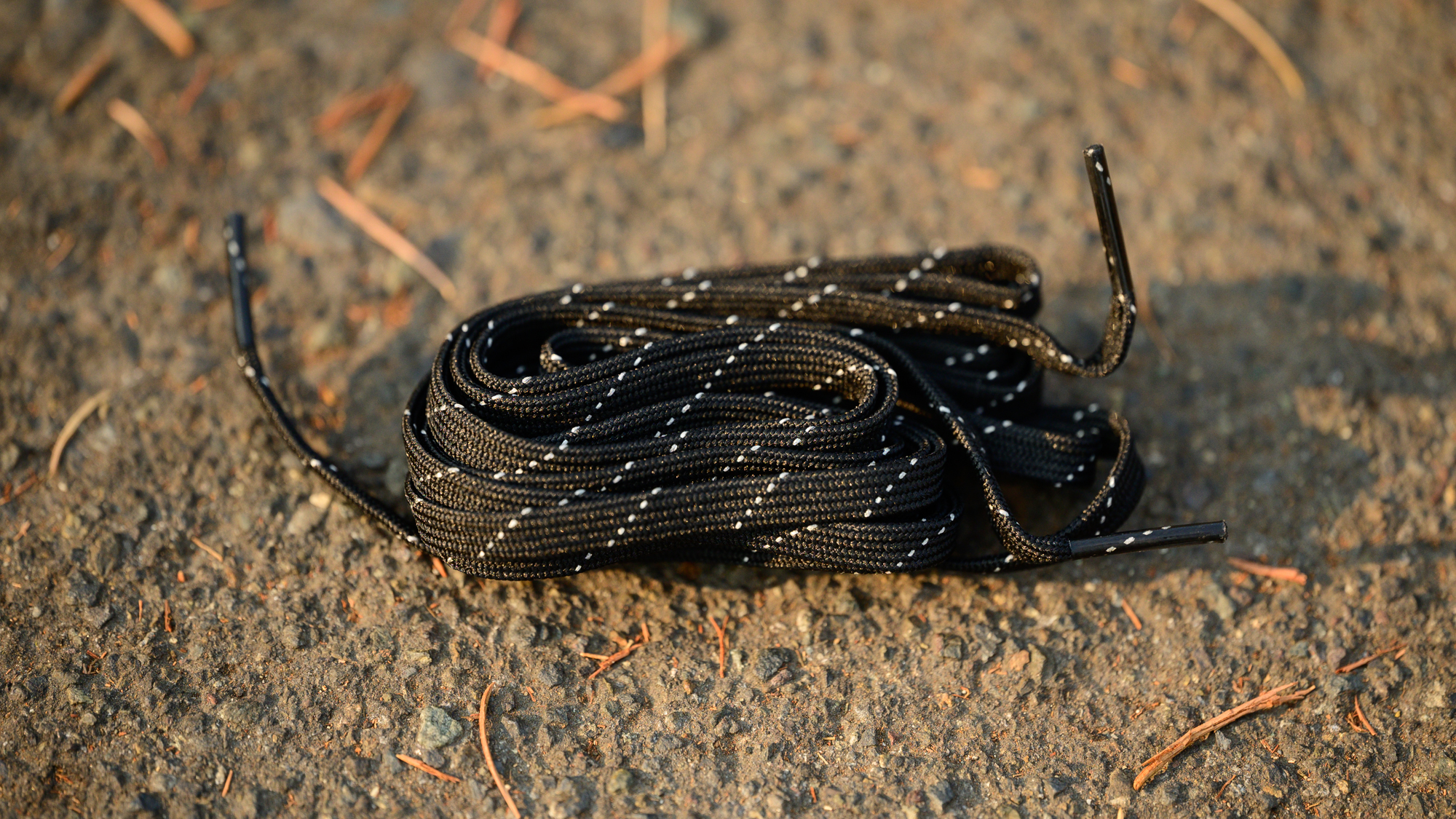
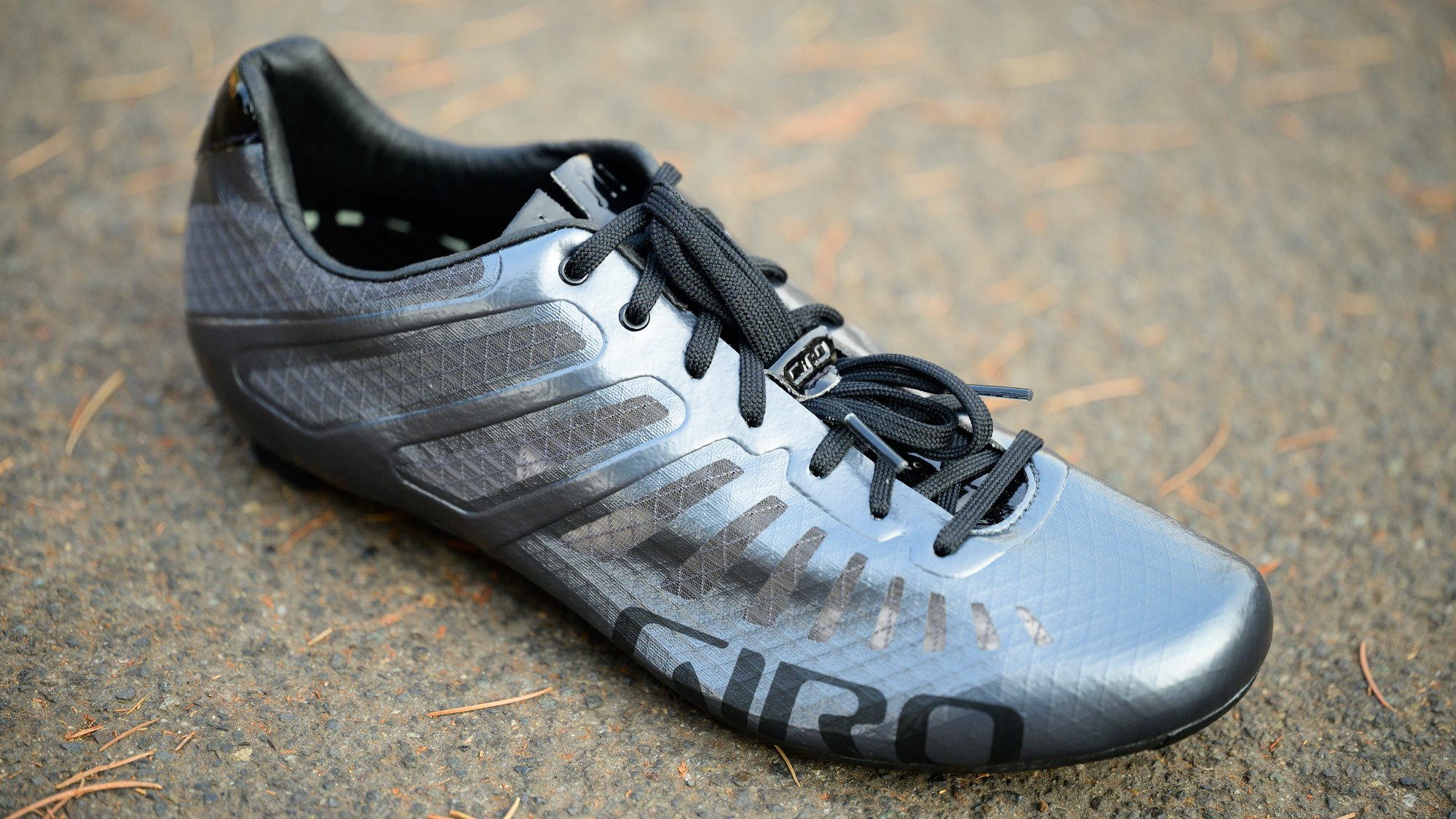
Performance
While the rest of the world found themselves drawn to the Giro lace up shoes when a young, potential saviour of American cycling put them into road cycling race reports, I wasn't paying attention. Ten years later when another American phenom, Keegan Swenson, was again using Giro lace ups, this time for gravel racing, I still wasn't paying much attention. Instead, it was seven years ago watching the impossibly cool, slightly older Taylor Phinney hike through the snow in Therabout Reprise with Cam Wurf, Gus Morton, and Lachlan Morton. The four friends weren't racing but seeing Phinney with his bright coloured laces wrapped around the centre of his Giro shoes is a memory I haven't forgotten.
There's something undeniably cool about lace up road cycling shoes and through the history of the Empire, that's what the focus has always been. You'll still find heated debates around that idea today. Many would argue that the laces are an appeal at fashion but I disagree. The Giro Empire SLX is not a shoe about looking good in laces. I'd argue that's an added bonus but it doesn't matter if you agree. The Empire SLX is one of the most advanced performance shoes you can buy and even after three years on the market, that hasn't changed.
Phinney wanted the laces because he was looking for a way to keep his shoes as aero as possible. I'm not aware of any wind tunnel testing I can point to but laces minimise bumps and protrusions and Bradley Wiggins seemed to see some value in the design given he chose them for his hour record. It's also relatively easy to cover the actual laces which is something Swenson did, using a chopped up arm warmer, when he won the 2023 Leadville 100 mountain bike race. There's also another advantage to the laces though and that's what the SLX version of the Empire leans into.
Laces just don't weigh a lot. As a result, the Giro Empire has always been a light shoe. The Empire SLX takes that even further with a high tech upper that makes the shoes one of the lightest I've ever tested at 212 grams per side for a size 44. Giro claims that makes for a 39 gram weight difference compared to the cheaper Empire. That amount of weight is imperceptible in most bike components but in a constantly moving shoe, you'll notice it.
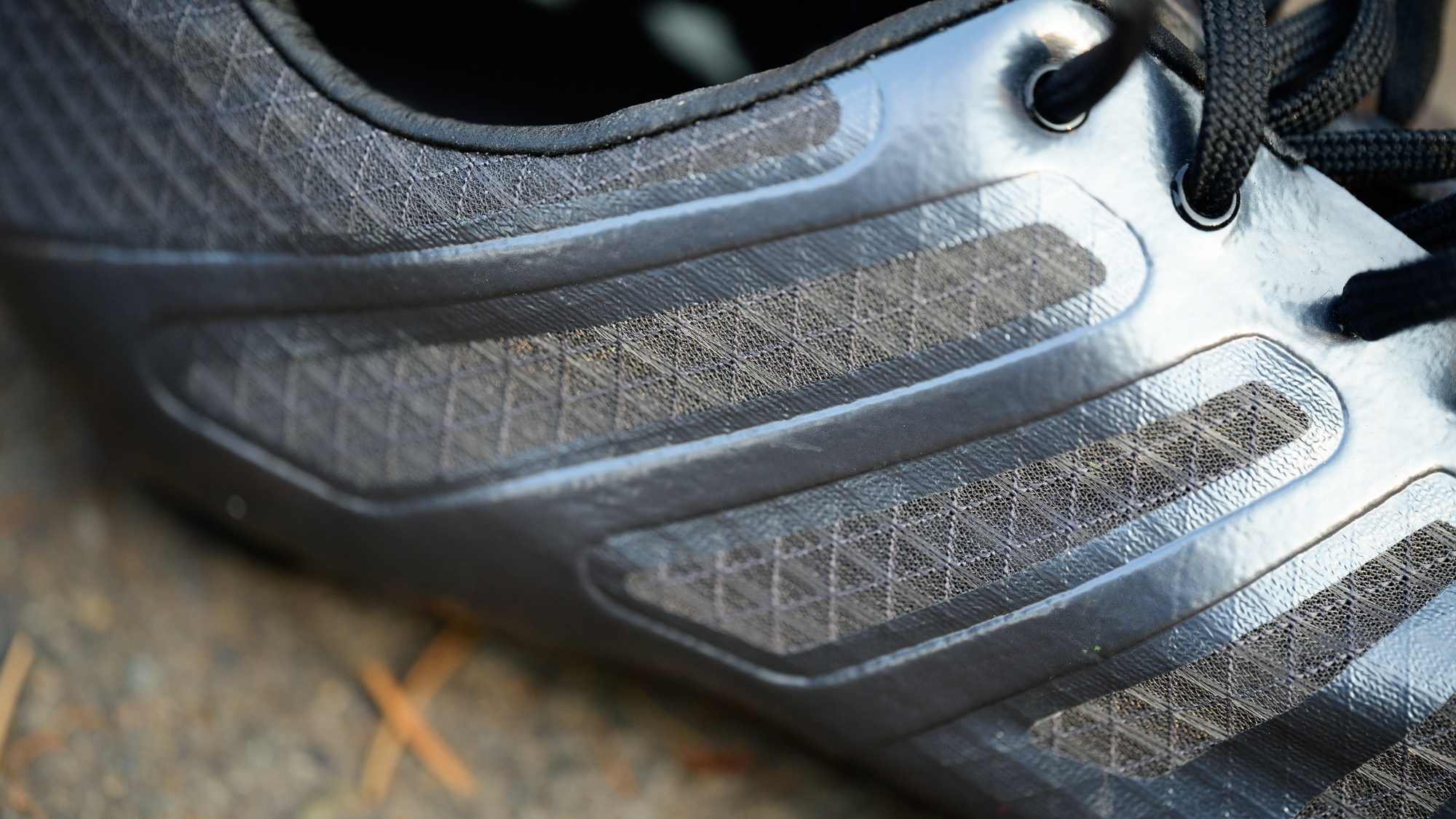
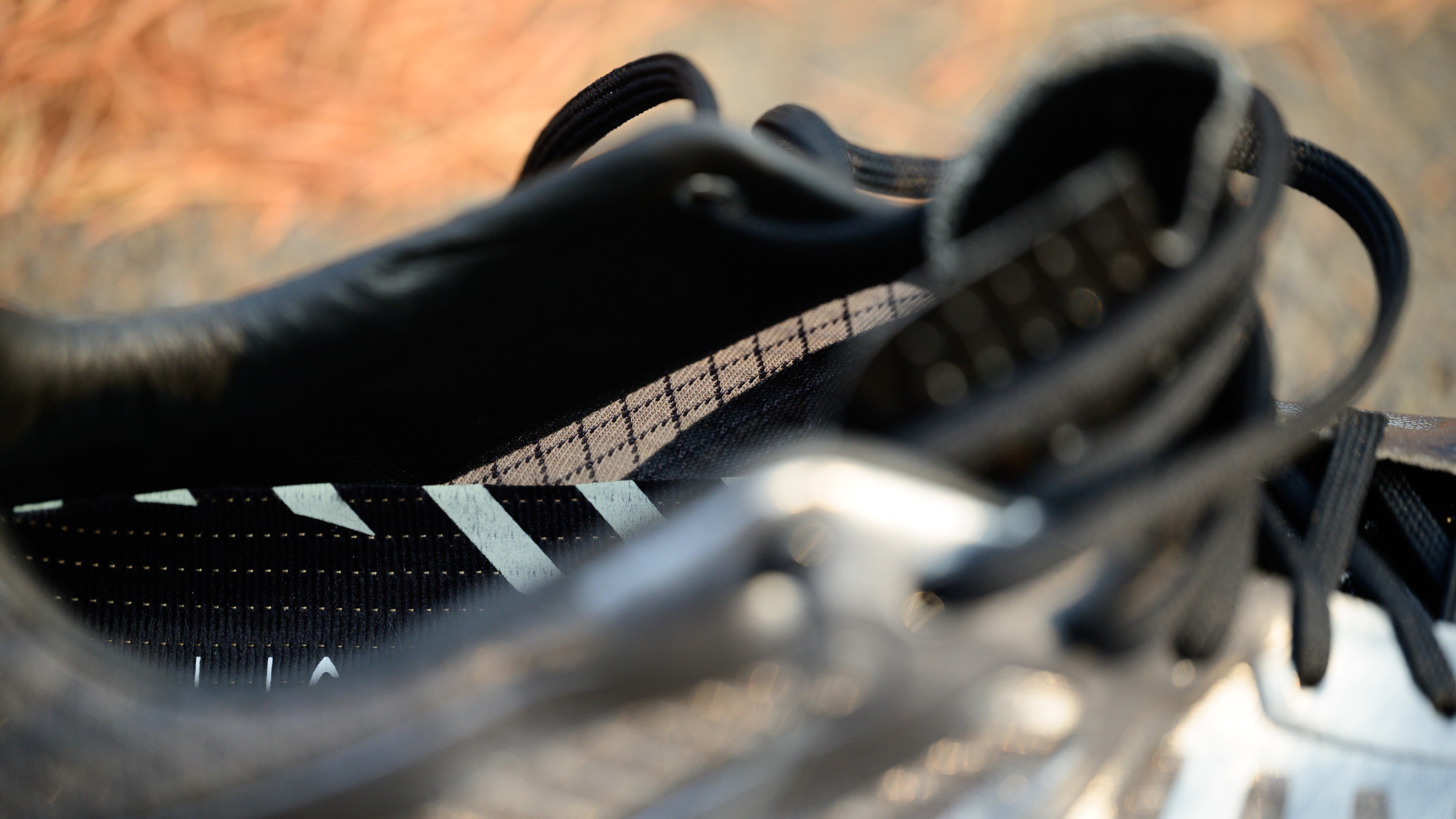
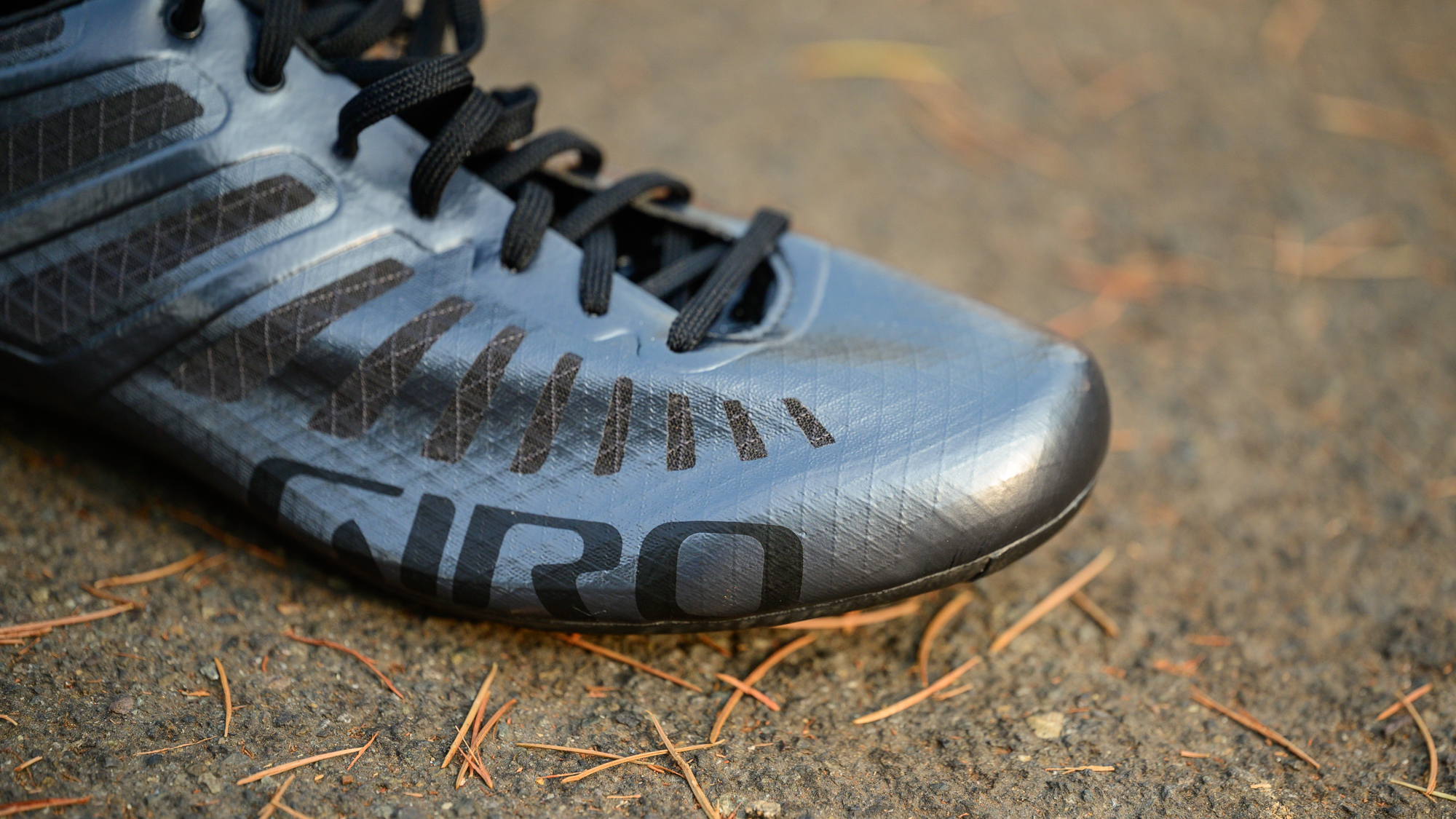
The upper has other side effects though. Because the upper is so thin and light it's highly ventilated. That part is fairly obvious though. What's not obvious is how the lightweight upper interacts with the laces and conforms to your foot. You can feel it happen on the standard Empire but the 2019 Empire SLX exaggerates the effect. The stretchy laces pull tight and sinch the upper to your foot perfectly following all the contours. Giro actually adds structure in the toe, though frustratingly no protection from toe rub, to make sure that there remains a bit of volume in the toe area. Conversely, at the rear of the shoe there's less structure than some shoes and it's still more than enough to keep the heel locked in place. Everything comes together as a system and it feels precise across your entire foot in a way no other shoe can match.
The laces work because of the stretch they have but they also work because of the low structure upper. People tend to focus on the inability to adjust the laces mid-ride and that's fair. That said, even during the multiple 200-ish mile rides I've done in these shoes, I've never wanted to adjust them. The carbon base doesn't wrap above the sole of your foot, the upper is responsive to pressure from your foot, and the laces will stretch. Tighten the Giro Empire SLX to fit when you leave the house in the morning and as your foot swells a bit it will find room.
All that said, there is a limit. The Giro last is narrow near the ball of your foot. If you want a wide shoe, this isn't the shoe for you. The Giro Empire SLX reminds me of a rock climbing shoe, or what I imagine a ballet slipper would feel like. It's wrapped around your foot like a second skin with only a few small details providing space. If you want a feeling of actual space in your shoe, as Specialized has worked to provide in the latest version of shoes like the Specialized Torch, you won't get that here. It's the one thing that can sometimes start to feel tiring after riding for long enough in the Empire SLX.
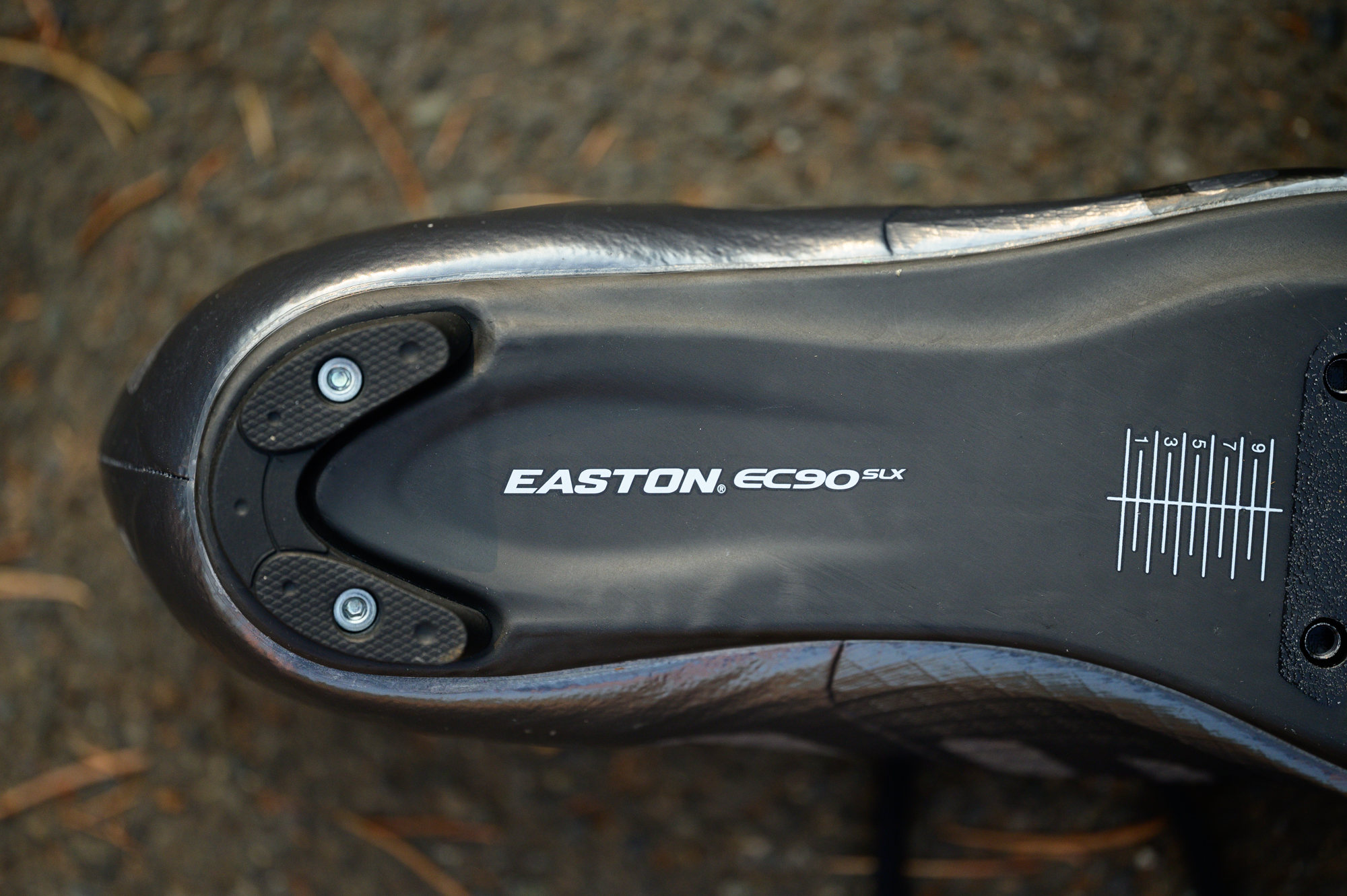
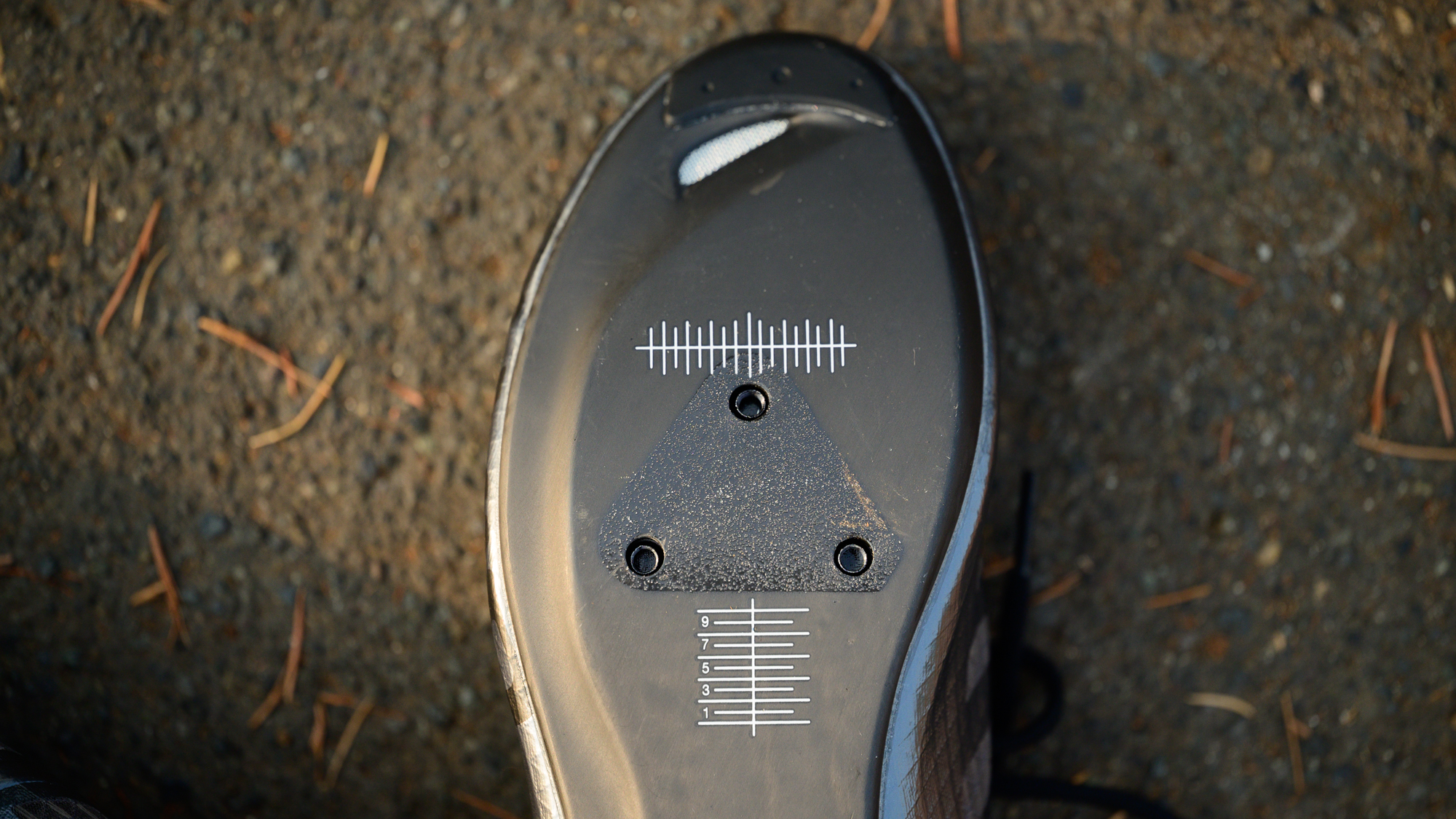
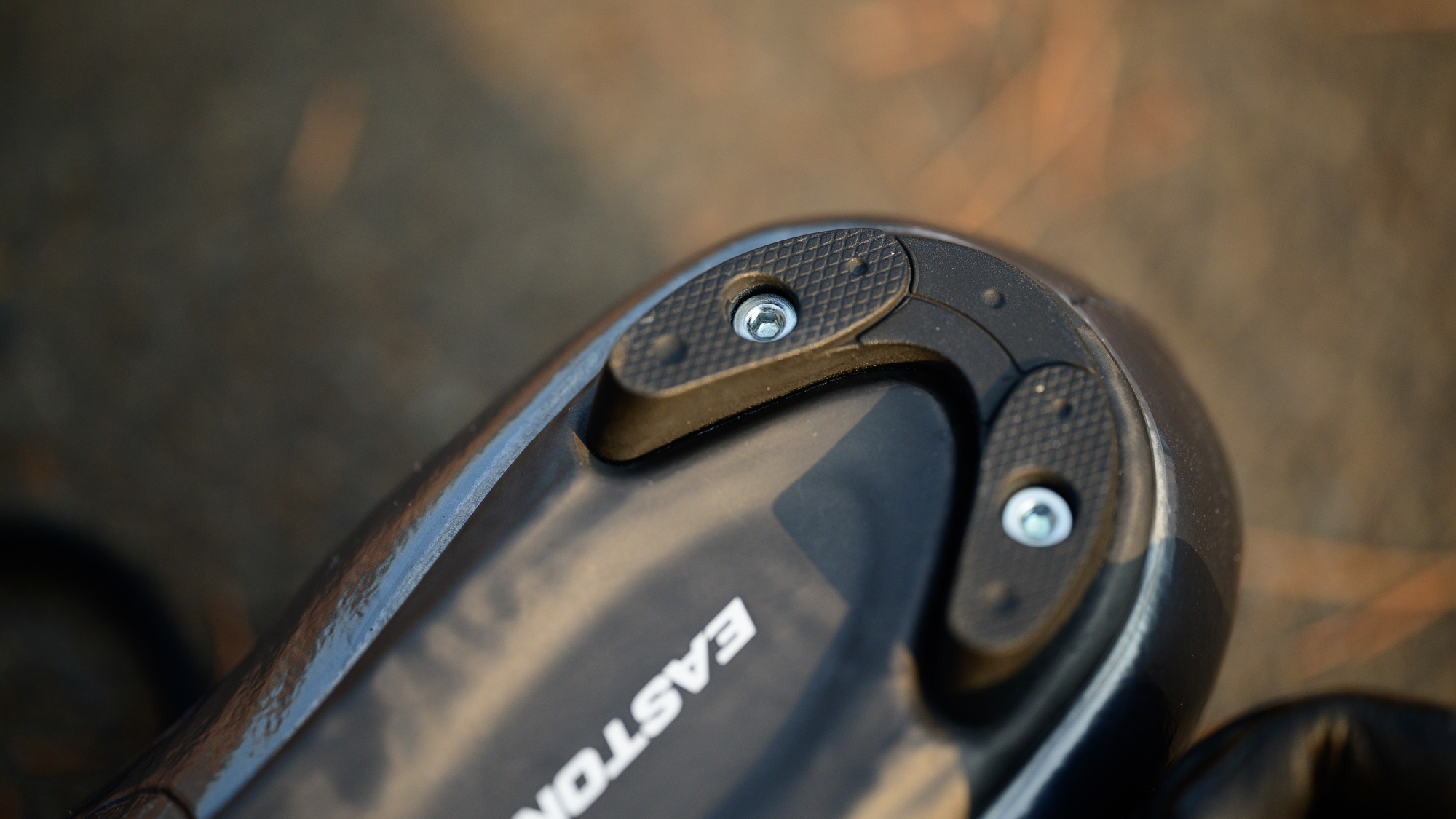
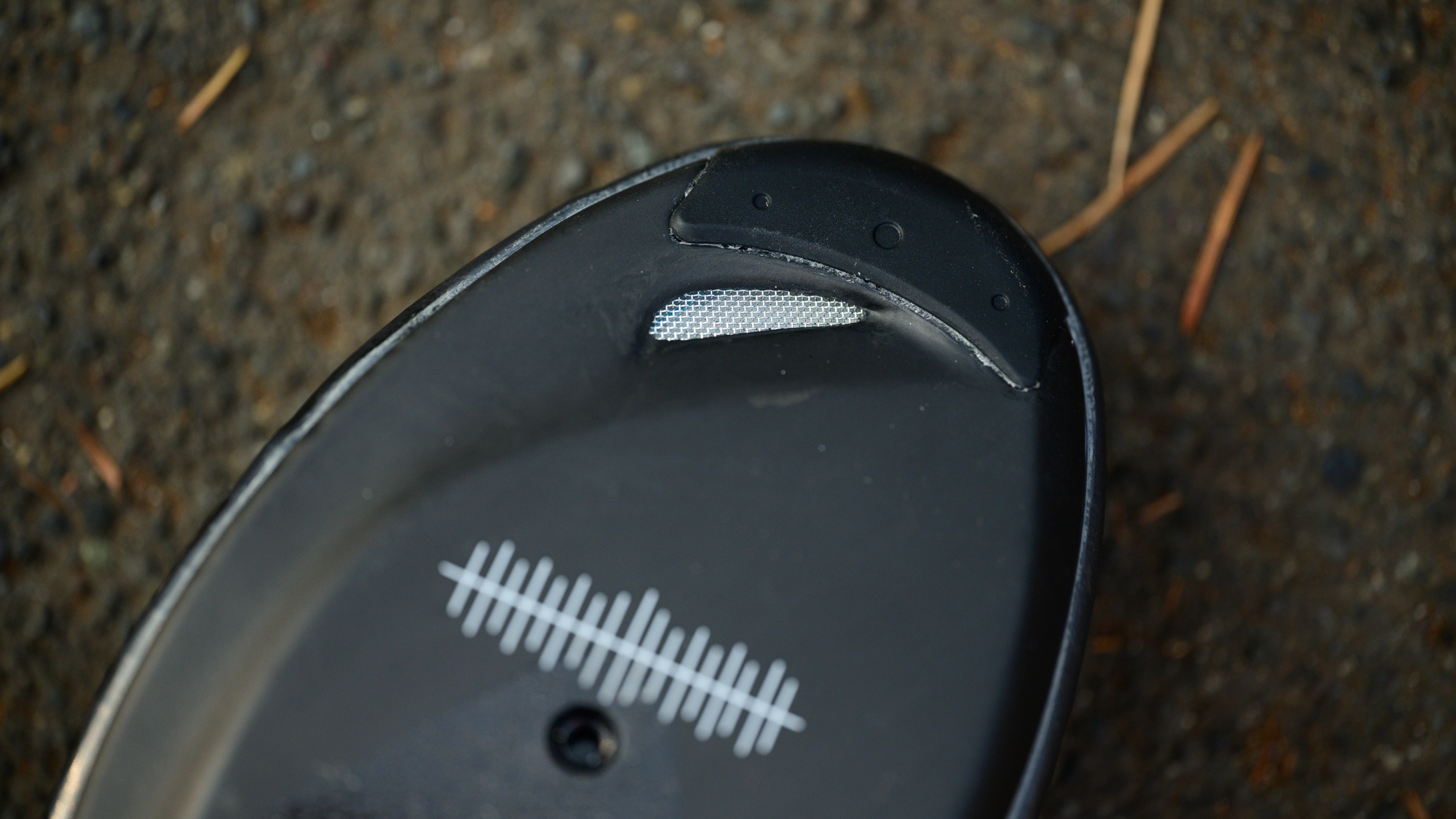
Verdict
This article begins by talking about how anomalous the Giro Empire SLX is because of its time on the market. I said it because there's no getting around that fact but that's not the only thing that makes the Empire SLX an anomaly. It's also an anomaly because of everything it can do.
The concept of the Giro Empire SLX first made a debut as a time trial shoe then found success in the peloton of a grand tour. Since then it's seen success as an aero option on the track and on a mountain bike. Personally, I've chosen these shoes time and time again for adventures across states and time zones. Although I'm drawn to anything aero, it's the other features that always drew me in.
The upper is light and airy but somehow tough enough for gravel racing. The laces aren't adjustable mid-ride but the stretch and low-structure upper mean they don't need to be. There are other lace up shoes but none of them are as light, and light shoes on your constantly moving feet feel great.
I called out the lack of protection for toe rub but that's going to be an annoyance, not stop you from being comfortable. So unless you need a wider shoe with more space in the front, the Empire SLX would come highly recommended. With that said, the narrow last might stop you from being comfortable and it's the one thing I would love to see changed in the future.
